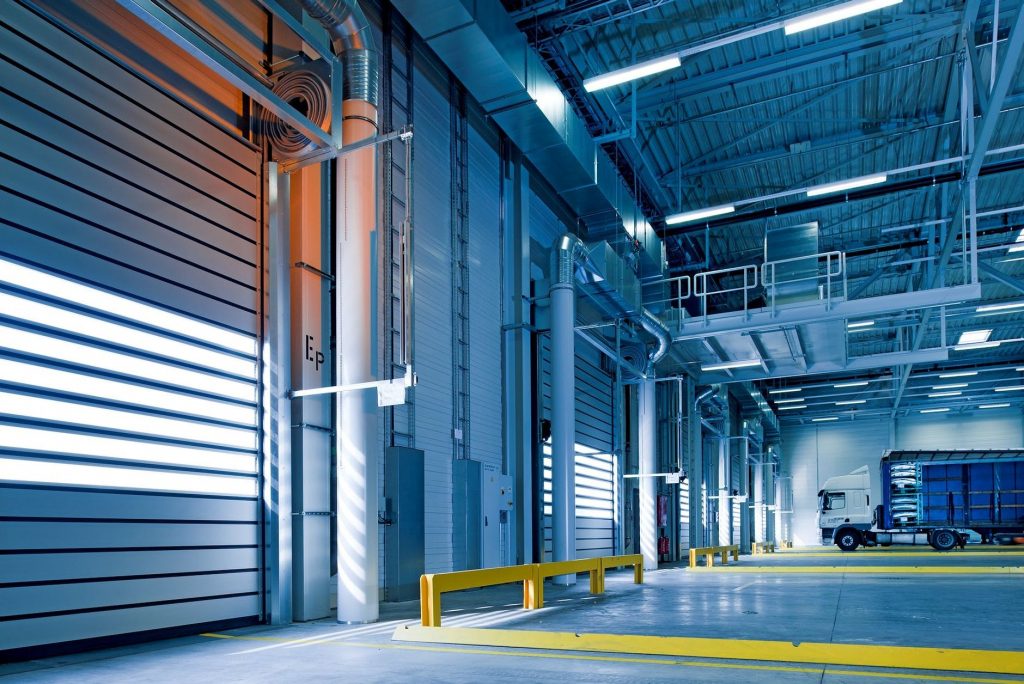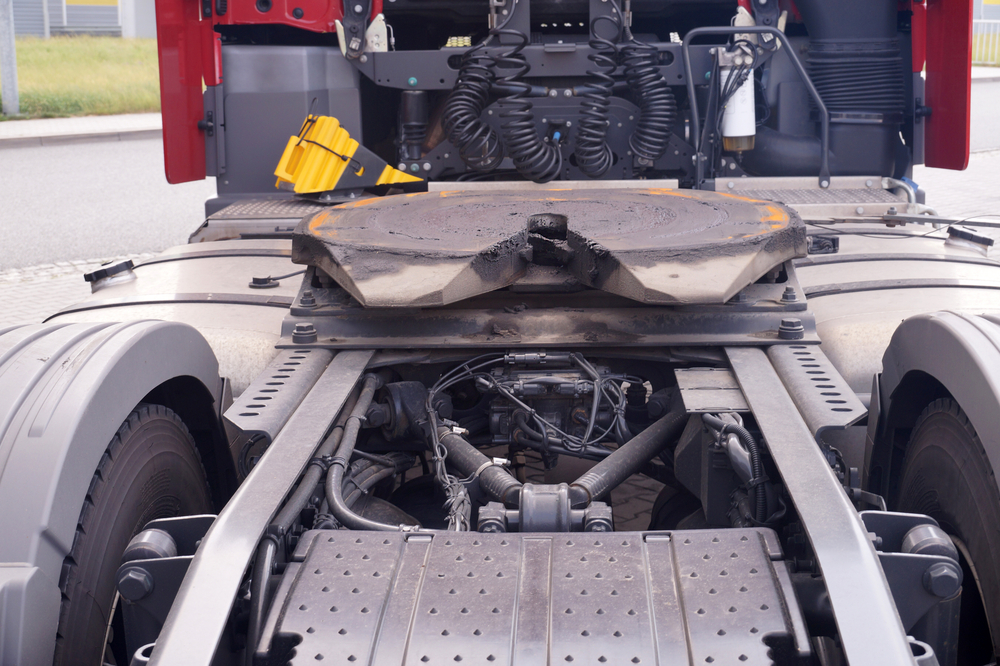
10 Top Truck Maintenance Tips
When you are on the road hauling large loads of valuable goods, you want to make sure that your heavy vehicle is functioning the way it should for your safety and the cargo. We have compiled our best 10 tips to make sure that you know exactly what could go wrong and know how to respond. The unfortunate thing for truckers is that anything could go wrong at any given place so a simple know-how is extremely important.
1. HAVE A PLAN TO COMBAT BRAKE WEAR AND FAILURE
Brake failure is a common cause for accidents, which often result in vehicle damage, third-party injury and lawsuits. To avoid these potentially catastrophic results, be sure to establish a plan for having a professional service your brakes as part of your truck maintenance routine. The distance a truck can travel between brake service depends on the driving habits of the driver, but it’s safest to have them inspected and maintained during every oil change.
Maintenance Tips: Brake parts wear and need to be replaced on a regular basis. Brake shoe indicators that are built into the pads will tell you when to replace them. When you bring your truck in to replace the pads, your maintenance provider should also install new brake springs, pins and bushings. The drums should be replaced at the same time shoes are changed out because they wear down and can develop heat cracks.
Application pressure is a key to stopping your truck, so check the pressure gauge to be sure it reads at least 60 psi or greater — between 100 and 125 psi is ideal — before putting the truck to work. If pressure is consistently less than 100 psi, have the brakes checked.
Brakes have many components that need to be maintained on a regular basis, so be sure to have your maintenance provider grease the slack adjusters, check and grease the S cams, and check the linings and hoses.

2. DO TESTS TO AVOID ENGINE PROBLEMS
Engine and drivetrain problems will take your truck off the road faster than you can say “downtime,” so be on the lookout for signs such as excessive smoking, loss of oil pressure or a decrease in power. These are symptoms of an unhealthy engine and should be dealt with immediately, preferably by a professional such as Empire Truck & Trailer that can properly diagnosis the problem and make the appropriate repairs.
Maintenance Tips: For the engine, arrange to have your maintenance provider conduct periodic compression tests, which will provide a sense of how long the engine will last. Other maintenance checks include monitoring engine coolant and exhaust temperature and keeping an eye on oil and boost pressures. Have all rubber parts under the hood and the wheel alignment checked on a regular basis.
3. PREVENT BODY PROBLEMS
Body corrosion is a major reason why some trucks are retired earlier than others. Salt and other chemicals are common causes of rust. If you happen to drive in areas where winter roads are treated for snow and ice, the chances are high your truck’s body will corrode over time. You can’t prevent rust, but you can slow it down and extend the life of the vehicle by embracing these truck maintenance tips.
Maintenance Tips: Do the following to keep your truck’s body in top shape:
Paint chips bigger than the tip of a pen are perfect places for rust to begin and should be dealt with immediately. If your regular maintenance company doesn’t provide this service, find a reputable paint shop that will warrant its work.
Wash your truck every 10 days. Washing keeps contaminants from eating through the clear coat, paint, primer and bare metal. Also be sure to keep any drains clear of debris and wipe down the doorjams.
Spray door locks with a lubricant such as WD-40 in colder weather before stowing your truck for the evening. This will protect the lock from moisture, which causes rust.
Wash your truck immediately following snow, sleet or rain. Snow and sleet mixed with road salt will corrode the chassis. Rain collects pollutants and deposits them as “acid rain,” which damages the protective finish.
This is a tough one, but it’s best to avoid driving through large puddles on roads and in parking lots. They collect contaminants along with abrasive dirt and grime, which can inflict heavy corrosion on your vehicle’s body and undercarriage.
4. KEEP ABREAST OF ELECTRICAL SYSTEM ISSUES
Newer trucks are more reliant on electrical systems to keep the engines running at peak efficiency or at all, for that matter. These newer vehicles use bundles of wires and many sensors to communicate with an onboard computer to keep their engines turning.
Maintenance Tip: Companies, such as TRT, that specialise in truck maintenance know how to diagnose and maintain the electrical components of your truck. Some things are best left to the pros — and maintaining and repairing electronics under the hood is one of them.
5. REPLACE PARTS THAT ARE SUBJECT TO WEAR AND TEAR
Parts wear out and you replace them, right? Well, maybe not. Truck manufacturers eventually stop making parts for older models, and then you may be out of luck.
Maintenance Tips: Stockpile parts you know you will need, and buy parts with lifetime warranties. Here’s another tip. Some parts you might think don’t come with lifetime warranties actually do. Most brake pads, alternators, starters, and even oil seals come with warranties, so be sure to include them when making your parts list. Stockpiling may cost more in the long run, but the peace of mind that comes with knowing you’ll have them when you need them is priceless.

6. MAINTAIN LUBRICATION
Keep your truck lubed, using only high-quality grease on the suspension, steering, and drivetrain zerks. Failure to do so can lead to premature wear and costly breakdowns.
Maintenance Tips: Make sure that checking for leaks and slop in drivetrain parts is on your routine truck maintenance checklist. As a best practice, you should lube all applicable parts and fittings before each haul.
7. BE WARY OF SHORT TRIPS AND EXTENDED IDLING
Short trips and city driving are engine killers, and if you can’t avoid them be sure to prepare for them.
Maintenance Tips: Consider asking your maintenance provider to install a pre-luber system, which uses an electric pump to deliver oil to critical parts before the engine is cranked. Also consider a turbo timer, which senses how hot the engine is and keeps the engine running until it cools enough to shut down safely. Check this out for yourself by checking out the engine coolant temperature gauge the next time you turn off your truck. It’ll rise since the flow of cooling fluids has stopped.
8. CHANGE OIL REGULARLY
On average, engine deterioration occurs every few thousand miles and that’s especially true for trucks that are constantly on the road. Every engine wears down eventually, but fresh oil prevents that from happening prematurely. Oil undergoes a thermal breakdown over time. As it fails, engine friction increases, raising the chances of total engine failure or a very expensive trip to a repair shop.
Maintenance Tips: Although most manufacturers recommend an oil change every 5,000 to 7,000 miles in reality the frequency varies based on the vehicle and the use of the vehicle. Some mechanics recommend more frequent oil changes, especially for trucks that receive heavy use.
9. AVOID DIESEL PARTICULATE FILTER CLOGGING
Environmental regulations have drastically changed the truck maintenance landscape over the past ten years. While emission-control technologies such as diesel particulate filters, selective catalytic reduction systems and diesel exhaust fluids are good for the environment, they are expensive to purchase, install and maintain — $3,000-$5,000 just remove and clean the diesel particulate filter by some estimates.
Still, regulations are regulations, so it pays, in more ways than one, to schedule regular maintenance checks on your truck’s emission control apparatus.
Maintaining the diesel particulate filter is an important part of your regularly scheduled diesel truck maintenance program for several reasons. If you ignore it, you risk more than just the cost to replace the filter:
- Your truck could suffer a more costly engine malfunction or breakdown.
- You could void your vehicle’s warranty.
- You may fall out of compliance with state or federal air pollution regulations.
Maintenance Tips: Worn fuel injectors will result in the use of more fuel, which is costly to you. It also results in the generation and accumulation of soot in the fuel filter, which retards the filter’s effectiveness and affects the overall performance of the vehicle. Bottom line, your truck maintenance schedule should include repairing and replacing your fuel injectors at regular intervals as recommended by the manufacturer.
You’ll also want to have your maintenance provider check the turbocharger regularly for proper operation and wear. Turbochargers that don’t produce enough air or have leaky seals result in more soot or the occurrence of lube oil in the exhaust, which could put you out of compliance.
10. INFLATE TIRES TO THE RIGHT LEVELS
Underinflated tires are a drag on fuel efficiency, and overinflated tires are a safety risk because they are more prone to blowouts or premature tread wear.
Maintenance Tips: According to the U.S. Department of Energy, you can save up to 3.3 percent on your fuel bill by keeping your tires properly inflate. To find the proper tire pressure for your truck, check your owner’s manual or the markings around the rim of the tire.
If you would like to read the full article head over to the Truck and Trailer Empire website.



